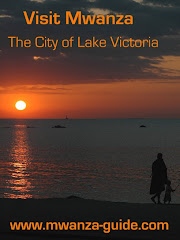By JIMMY LWANGILI
Speaking at a brief signing ceremony, Professor Mbarawa said the government and TCAA would contribute 55 and 45 per cent, respectively, of the total costs. He said the envisaged four radars would be installed in four airports within an 18-month period.
The minister named the radar beneficiaries as Julius Nyerere International Airport in Dar es Salaam, Songwe Airport in Mbeya, Kilimanjaro International Airport and Mwanza International Airport.
He ordered Thales Air System SS, an engineering firm that has won tender to execute the project, to ensure that the project is complete within the specified time and at high precision.
“I believe TCAA will honestly and patriotically supervise the project implementation... I urge the contractors to work as per contract specifications.If you deliver contrary to specifications, the government will terminate the contract and subject you to fines,” warned the minister. He underscored the importance of purchasing the new radars, arguing that they will strengthen safety and aviation security, increasing revenues through attraction of more airliners in the country’s airspace.


